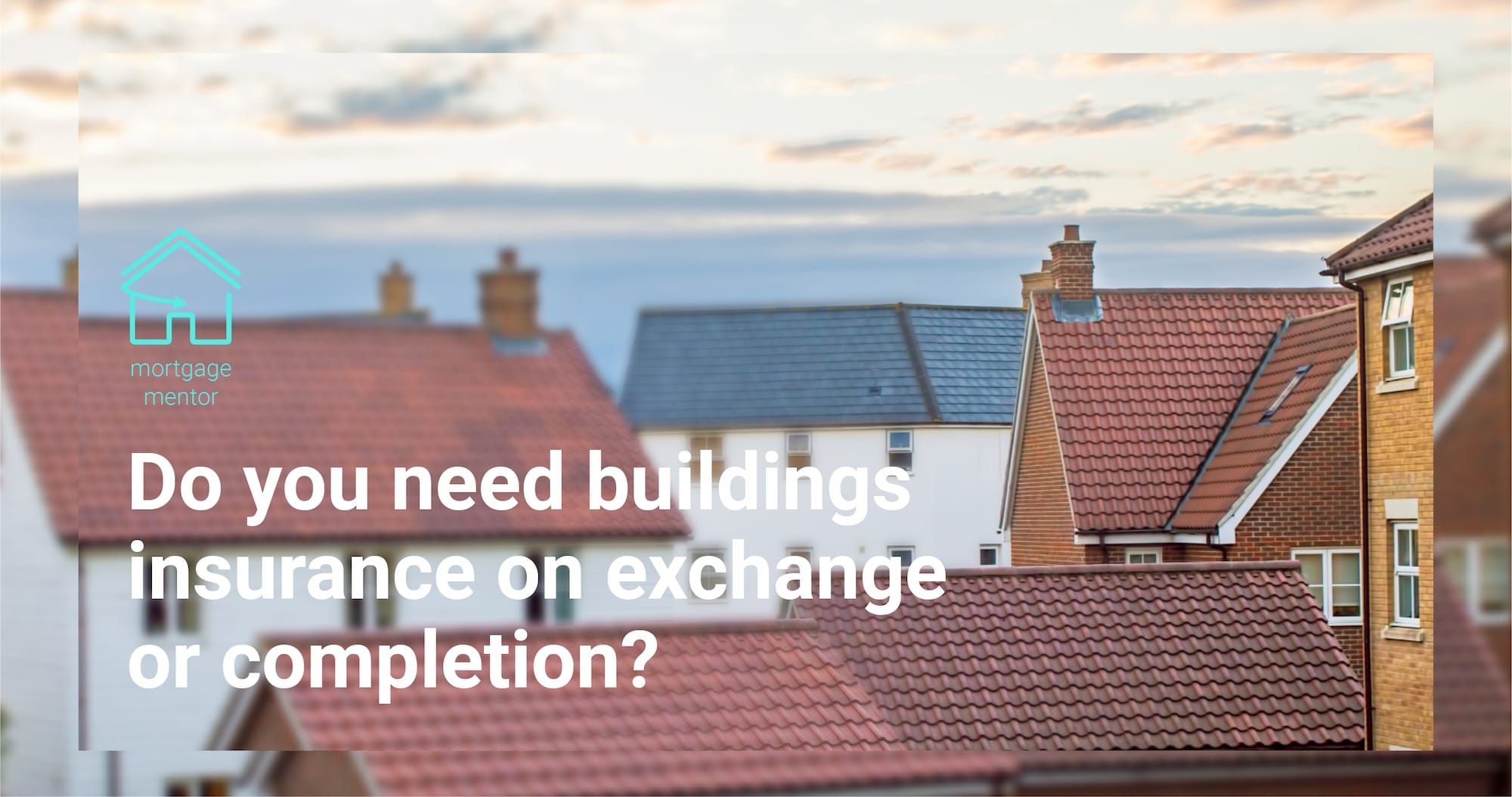
Buying a house is an exciting time, but you don't need us to tell you that there is a lot to think about. Amongst these things is the question, 'do you need buildings insurance on exchange or completion?' In this article, we will tell you all you need to know to ensure you get this right from the outset.
The property becomes your legal responsibility as soon as the contracts are exchanged. From this date, anything that happens to that property is your responsibility to address, and an active buildings insurance policy covers you for any costs you might incur (subject to terms and conditions - always read the small print). Buying a home will probably be the most expensive purchase you make in your life, so you will want to give yourself peace of mind from the outset.
We strongly advise against waiting until you move in to purchase buildings insurance. If a pipe bursts or there is a fire in the home between the exchange of contracts and the completion date, you are still committed to the purchase of the property. For this reason, you will want to have buildings insurance cover from the moment the contracts are exchanged to ensure you don't find yourself in a nightmare scenario.
The law does not compel you to purchase buildings insurance for your property, but the vast majority of mortgage providers will insist that you do. That said, you do not have to buy your buildings insurance from your mortgage provider, so don't feel pressured to do so. It is always wise to shop around and look for the most suitable deal available.
If you do not have a mortgage, there is nothing forcing you to have buildings insurance. However, we strongly advise you to take it out unless you can comfortably cover the cost of repairing or rebuilding your property in the event of it being damaged. If you can't do this, you should view buildings insurance as an essential purchase.
This really depends on the terms of your lease. Some freeholders purchase buildings insurance for the entire property and collect a share from all leaseholders via the service. Many freeholders do not do this, however, so you should read your lease carefully to understand your responsibilities.
If you have any doubts, ask the freeholder. Be sure to do this in writing, for example by email, so that you have a tangible record.
This can be a challenge when buying buildings insurance for a property you haven't yet moved into. The insurer may ask questions you don't know the answer to, such as the date of construction or the percentage of the property that has a flat roof. If this happens, you have two options:
The one thing you must not do is guess. If your guess is not accurate, your policy could be invalidated in the event that you make a claim.
Buildings insurance relates to the following:
With buildings insurance in place, you may be able to make a claim if an unexpected event causes damage to any of the above (depending on the terms of the policy). This includes fire, floods, storms, vandalism, frozen/burst pipes, subsidence and incidents like fallen trees.
It is unwise to assume these things won't happen to you. If they do, and you have no buildings insurance in place, you will have to cover the cost of repairs out of your own pocket.
There are a couple of key things to keep in mind when seeking the most suitable buildings insurance.
If you plan to renovate your new house or add a loft conversion or extension, you must review your buildings insurance afterwards. It is likely that your home's rebuild cost will go up, so the policy will need to be revised.
A strong policy will also offer coverage for alternative accommodation in the event that you need somewhere to stay while your home is repaired. It should also offer public liability insurance to cover you if someone is injured in your home and subsequently seeks compensation.
Buildings insurance is not intended to cover the market value of your home. Instead, it should cover the cost it would take to rebuild it, which is typically lower than the market value. There are online tools that can help calculate this cost, or you could consult a professional surveyor. There are also insurers that offer 'blanket' coverage of a preset amount to make it simpler.
If the property you are buying is damaged after the exchange of contracts, the seller is obliged to inform you. However, the responsibility to carry out repairs lies with you. This is why you need buildings insurance on exchange rather than completion.
Though buildings insurance is not always compulsory, it is strongly advised in all circumstances. You become liable for any damage to the property from the exchange of contracts, so this is when you should purchase cover.
If you are looking to buy a new home and need help with the process, please don't hesitate to contact Mortgage Mentor. We take the stress out of securing the most suitable mortgage and can advise on all other things relating to the purchase. Remember, as a mortgage is secured against your home/property, it may be repossessed if you do not keep up with the mortgage repayments.
Contact Us